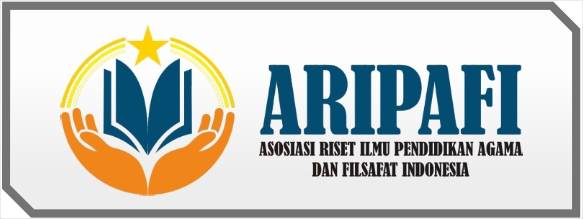Perjalanan Dakwah Rasulullah SAW dari Makkah ke Madinah
DOI:
https://doi.org/10.61132/reflection.v2i1.377Keywords:
Da'wah, Strategies In Da'wah, MethodsAbstract
Prophet Muhammad SAW, was a religious leader and state leader who had a commendable personality. He is the best role model (uswatun hasanah) for Muslims throughout the Islamic world. Through the Islamiyah da'wah organization, the Prophet was able to change the course of history and greatly influence the development of Islamic broadcasting from the jahiliyah (pre-Islamic) era to the era of Islamic civilization. The mission of Rasulullah SAW during the Mecca to Medina period was aimed at forming a pluralistic Muslim personality (in Mecca) as an absolute element of building an Islamic government in Medina where the community of Medina residents was plural. Pluralism in Medina was reflected in the existence of differences in religion, ethnicity and class and to create tolerance between each other through the Islamic da'wah organization. The Prophet's success in building a government was marked by the creation of the Medina charter as a law that regulated the plural community of Medina residents. This was despite his efforts in fighting for and preaching Islam, so that he was known as a highly respected Messenger and received sympathy from Muslims in Mecca - Medina at that time and the Islamic world in general. This study aims to reveal the events of the Prophet Muhammad's migration, the factors that caused it, its impacts, and the lessons that contributed to the formation of Islamic society. The research method used in this research is the method This descriptive study uses literature as a data collection tool. The analysis used is data reduction, data presentation, and drawing conclusions. The results of this research show; (1) That in the da'wah journey there are strategies so that the da'wah conveyed can be accepted, (2) the importance of knowing the important elements in da'wah activities to describe the journey of the Prophet's da'wah according to Islamic history (Mecca - Medina period).
References
A. Rafiq. (2020). Dampak media sosial terhadap perubahan sosial suatu masyarakat. Global Komunika, 3(1), 270–283. https://doi.org/10.34081/270033
Andini, M. (2023). Akidah dan etika: Relasi antara keyakinan dengan nilai moral. Al-Hikmah: Jurnal Theosofi Dan Peradaban Islam, 5(1), 98–115. https://doi.org/10.51900/alhikmah.v5i1.19376
Arif, A. (2020). Perspektif teori sosial Smile Durkheim dalam sosiologi pendidikan. Moderasi: Jurnal Studi Ilmu Pengetahuan Sosial, 1(2), 1–14.
Azizah, I. N., Naila, Z. P., Sari, M. W., Wismanto, Z., Saidah, E., Ibrahim, R., & Salim, A. (2024). Membenahi pergaulan remaja di era disrupsi melalui pendidikan fikih Universitas Muhammadiyah Riau. 3.
Djami, M. M. E. (2022). Dialog aksi berbasis kearifan lokal dalam rangka penguatan moderasi beragama di desa tesbatan. Losari: Jurnal Pengabdian Masyarakat, 15(1), 17–22.
Fadilatunisa, D., & Laily, S. (2024). Etika berbicara remaja Muslim terhadap teman sebaya. Journal Islamic Education, 3(2), 1–12.
Ferdinand, E. (2019). Etika dalam kehidupan bermasyarakat. Filsafat Ilmu Pengetahuan.
Goa. (2020). Perubahan sosial dalam kehidupan bermasyarakat. Sapa: Jurnal Kataketik Dan Pastoral, 2(2), 53–67.
Ismanto. (2022). Membangun kesadaran moral dan etika dalam berinteraksi di era digital pada remaja Karang Taruna RW 07 Rempoa, Ciputat Timur. Jurnal Abdi Masyarakat Multidisiplin, 1(1), 43–48.
Kasanah. (2022). Pergeseran nilai-nilai etika, moral dan akhlak masyarakat di era digital. Comprehensive Journal of Islamic Social Studies, 2(1), 68–73.
Lattu. (2023). Rethinking interreligious dialogue: Orality, collective memory and Christian-Muslim engagements in Indonesia. Jerman: Brill Schöningh.
Mualif, A., Fitri, A., Tauhid, Z., & Wismanto, W. (2024). Pengembangan masyarakat Muslim yang harmonis melalui pendidikan berbasis sunnah di era disrupsi. Journal of Education Research, 5(2), 2450–2457. https://doi.org/10.37985/jer.v5i2.1260
Muhlis, M. Y., & Kaharuddin. (2023). Islamic education 4.0: Integration of moral education values in the learning process. At-Tarbawi: Jurnal Kajian Kependidikan Islam, 7(2), 131–144. https://doi.org/10.22515/attarbawi.v7i2.5144
Nabila, A., Putro, B. U., Yulianti, D., & Fauzan, M. A. W. (2024). Riwayat hidup Nabi Muhammad S.A.W. 2(1).
Nurlaela, F. (2024). Urgensi pendidikan aqidah Islam dalam menghadapi tantangan modernitas (Analisis lapangan di SMK Muhammadiyah 4 Jakarta). Innovative: Journal of Social Science Research, 4(3), 5027–5037. http://j-innovative.org/index.php/innovative/article/view/10928
Priono, A. (2022). Integrasi ilmu dan agama dalam upaya membangun etika dan pendidikan moral dalam pembelajaran Islam. Prosiding Seminar Internasional, 1(1), 72–78. https://www.academia.edu/download/62195699/PENGUATAN_MORAL_ANAK_DI_ERA_MILLINEAL_PADA_LEMBAGA_PENDIDIKAN_ISLAM20200225-73540-tsbpfa.pdf
Rahman. (2023). Pendidikan karakter dalam era digital: Bagaimana teknologi mempengaruhi pembentukan moral dan etika. Journal of Creative Student Research, 1(6), 294–304.
Runni, E. (2022). Pentingnya etika dalam bermedia sosial. Jurnal Hukum Indonesia, 1(1), 30–33.
Said, M. Y., & Nurhayati, Y. (2020). Paradigma filsafat etika lingkungan dalam menentukan arah politik hukum lingkungan. Al-Adl: Jurnal Hukum, 12(1), 39. https://doi.org/10.31602/al-adl.v12i1.2598
Wismanto, A. H. (2016). Kitabut tauhid “Esa-kanlah Aku.” Nasya Expanding Manajemen.
Wismanto, A. H. (2018). Syarah kitab empat kaidah dasar memahami tauhid dan syirik (1st ed.). Cahaya Firdaus.
Wismanto, A., Alhairi, L., Lasmiadi, A., & Mualif, A. (2023). Aktualisasi peran guru aqidah akhlak dalam mengembangkan karakter toleransi peserta didik pada Sekolah Dasar Islam Ar-Rasyid Pekanbaru. 4(4), 1625–1633.
Wismanto, N. Y., Yapidus, H. P., & Pranata, D. (2022). Mitra PGMI: Pengembangan bahan ajar mata kuliah aqidah untuk mahasiswa pendidikan guru Madrasah Ibtidaiyah Universitas Muhammadiyah Riau. Mitra PGMI: Jurnal Kependidikan MI, 8, 50–59.
Wismanto, W., Zuhri, T., & A. Z. (2023). Upaya pencegahan budaya syirik di media sosial melalui pendidikan Islam berbasis Al Islam Kemuhammadiyahan. 12, 338–350.













